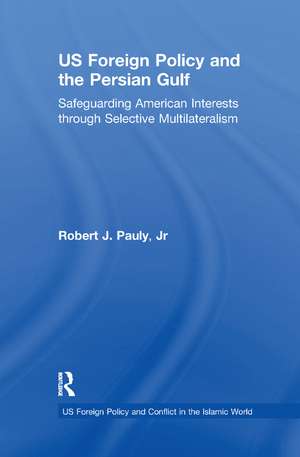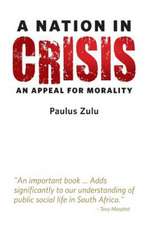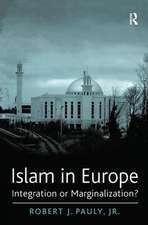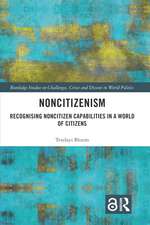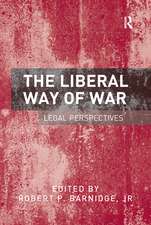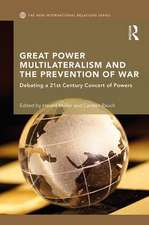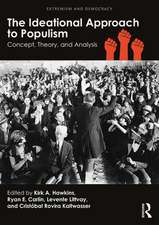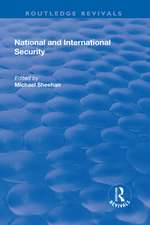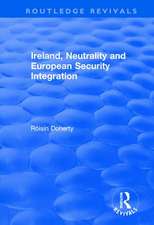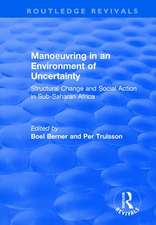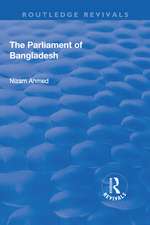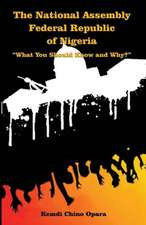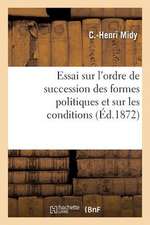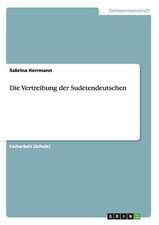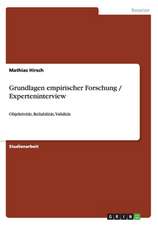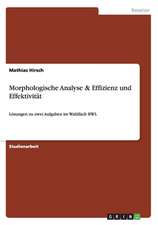US Foreign Policy and the Persian Gulf: Safeguarding American Interests through Selective Multilateralism: US Foreign Policy and Conflict in the Islamic World
Autor Robert J. Pauly, J. R.en Limba Engleză Paperback – 6 iun 2019
| Toate formatele și edițiile | Preț | Express |
|---|---|---|
| Paperback (1) | 436.14 lei 43-57 zile | |
| Taylor & Francis – 6 iun 2019 | 436.14 lei 43-57 zile | |
| Hardback (1) | 997.90 lei 43-57 zile | |
| Taylor & Francis – 11 mar 2005 | 997.90 lei 43-57 zile |
Preț: 436.14 lei
Nou
Puncte Express: 654
Preț estimativ în valută:
83.45€ • 87.37$ • 69.05£
83.45€ • 87.37$ • 69.05£
Carte tipărită la comandă
Livrare economică 07-21 aprilie
Preluare comenzi: 021 569.72.76
Specificații
ISBN-13: 9781138383593
ISBN-10: 1138383597
Pagini: 168
Dimensiuni: 156 x 234 x 9 mm
Greutate: 0.45 kg
Ediția:1
Editura: Taylor & Francis
Colecția Routledge
Seria US Foreign Policy and Conflict in the Islamic World
Locul publicării:Oxford, United Kingdom
ISBN-10: 1138383597
Pagini: 168
Dimensiuni: 156 x 234 x 9 mm
Greutate: 0.45 kg
Ediția:1
Editura: Taylor & Francis
Colecția Routledge
Seria US Foreign Policy and Conflict in the Islamic World
Locul publicării:Oxford, United Kingdom
Cuprins
Contents: Introduction; The United States and the Persian Gulf: a historical overview; George H.W. Bush administration and the Persian Gulf, 1989-1993; William J. Clinton administration and the Persian Gulf, 1993-2001; George W. Bush administration and the Persian Gulf, 2001-2004; Safeguarding US interests in the Persian Gulf: policy prescriptions; Conclusions; Bibliography; Index.
Recenzii
'Robert Pauly's in-depth study is illuminating and a serious treatment of US policy in Iraq. The author offers a first-of-its-kind analysis where US policy is viewed through the eyes of three American Presidents - Bush I, Clinton, and "W"...The reader will instantaneously observe that the author provides a balanced assessment of the subject...he commences this study by asking serious and thought provoking queries and concludes with bold observations about the dynamics that shaped US policy in Iraq.' John Davis, Howard University, USA 'Robert Pauly is emerging as an authoritative voice on the Middle East...he takes the reader beyond the superficiality that defines many post-September 11th publications, and offers an insightful analysis of American policy toward the region. An important dimension of this book (and Pauly's scholarship) is the discussion of transatlantic cooperation on the Middle East - what for, what now, and what next...Pauly has produced a work that is as enlightening as it is substantive.' Octavius Pinkard, Christopher Newport University, USA 'This book offers a sweeping and provocative assessment of US policies, both successes and failures, in a region that remains crucial to the security and well-being of the United States - the Persian Gulf. It offers a forceful analysis of why the United States went to war in Iraq twice, and a skillful and compelling defense of the current Bush administration's policies in the region. Anyone interested in understanding the importance and fluidity of the Persian Gulf region to the United States will be fascinated by reading this book.' Dr Eric A. Miller, National Institute for Public Policy, USA 'This book provides a comprehensive presentation of the arguments used by the United States to promote the war in Iraq.' 'The author raised some serious and thought-provoking questions in a balanced treatment of a very sensitive subject' - Digest of Middle East Studies
Notă biografică
Robert J. Pauly, Jr., is Associate Director of the International Development Program, and Assistant Professor of Political Science, at the University of Southern Mississippi, in Long Beach, Mississippi, USA
Descriere
Examining fundamental economic, military and political causes of the 1990-1991 Persian Gulf crisis, Robert J. Pauly, Jr investigates to what extent these causes were internal and external in origin. He looks at the principal actors in the crisis and determines whether and how they have continued to drive unfolding events in the Persian Gulf ever since.
